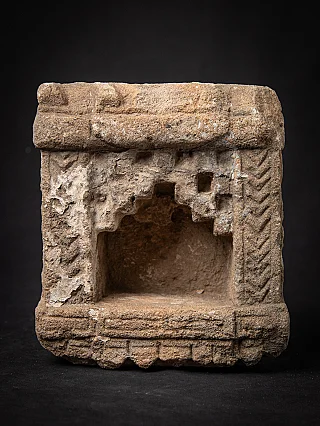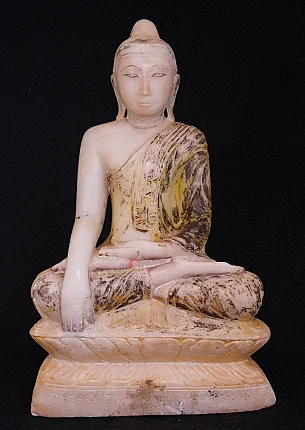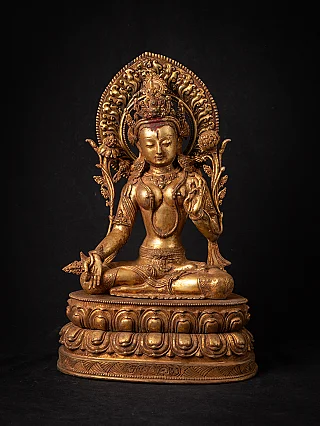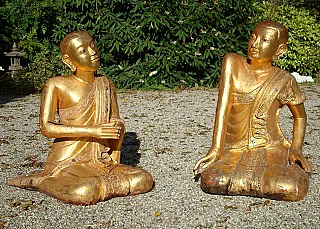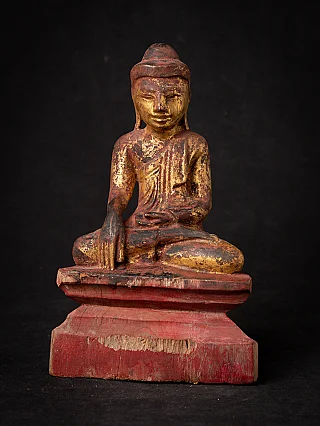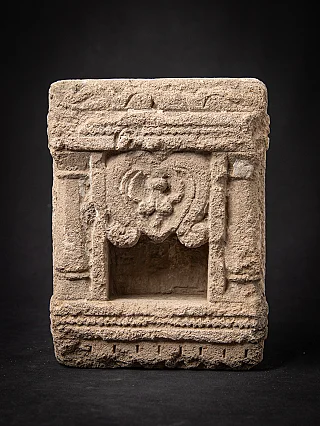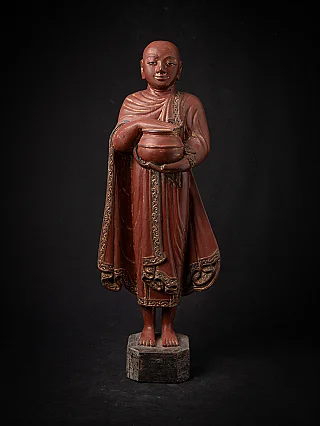The Role of Suffering in Buddhist Philosophy
Author : Peter Vredeveld

In Buddhist philosophy, suffering, or Dukkha, is a central concept permeating all life aspects. It is one of the important teachings of Buddha and serves as the foundation for understanding the human condition and the path to liberation.
End your sufferings with Buddha statue
Understanding Suffering (Dukkha)
Dukkha is often translated as suffering, but its meaning extends beyond physical pain and mental anguish. It encompasses a range of experiences, including the inherent dissatisfaction and discomfort in life due to the impermanence and insubstantiality of all phenomena.
Buddha identified three primary forms of Dukkha:
- Dukkha-dukkha: This refers to the obvious physical and mental suffering associated with birth, aging, illness, and death. It includes everyday pains such as physical discomfort, emotional distress, and psychological suffering. For example, a person experiencing chronic back pain, the grief of losing a loved one, or struggles with anxiety and depression illustrates Dukkha-dukkha.
- Viparinama-dukkha: This type of suffering arises from change. Even pleasant experiences are transient, leading to inevitable disappointment when they end. This form highlights the fleeting nature of joy and pleasure. Examples include the initial joy of buying a new car that fades over time, the sense of loss after a pleasant vacation ends, or the sadness from aging and losing youthful beauty.
- Sankhara-dukkha: This is the most subtle form of suffering related to the contingent nature of all phenomena. It reflects the fundamental unsatisfactoriness of life, arising from the five aggregates (form, sensation, perception, mental formations, and consciousness) being conditioned and impermanent. This can be seen in the persistent sense of unease despite having all basic needs met, the deep insecurity tied to job stability, or the underlying anxiety about potential changes or losses in solid and loving relationships.
The First Noble Truth: The Truth of Suffering
The First Noble Truth, Dukkha, acknowledges that suffering is an intrinsic part of human existence. It is not a pessimistic view but a realistic assessment meant to inspire a deeper understanding and subsequent action to overcome it. Buddha taught that by recognizing the presence of suffering, individuals can begin the journey toward its cessation.
The Universality of Suffering

Buddha emphasized that suffering is universal and affects everyone regardless of status, wealth, or power. He explained that every sentient being experiences suffering intrinsic to the cycle of birth, death, and rebirth (Samsara).
Causes of Suffering
According to Buddha, suffering arises from three primary causes, known as the Three Poisons or Three Unwholesome Roots:
- Greed (Lobha): The desire for pleasure, material possessions, and sensory experiences. Greed leads to attachment and craving, which are primary sources of suffering.
- Hatred (Dosa): Aversion, anger, and ill-will toward others and circumstances. Hatred fuels conflict, resentment, and negative emotions, perpetuating suffering.
- Ignorance (Moha): The misunderstanding of the true nature of reality, particularly the impermanence (Anicca) and non-self (Anatta) of all things. Ignorance leads to delusion and a distorted perception of reality, causing suffering.
These causes create a cycle of craving and attachment, which perpetuates suffering. Understanding and addressing these root causes is essential to overcoming Dukkha.
The Second Noble Truth: The Cause of Suffering

The Second Noble Truth, Samudaya, explains that the cause of suffering is Tanha (craving or desire). Tanha manifests in three forms:
- Kama-tanha: Craving for sensual pleasures.
- Bhava-tanha: Craving for existence or becoming.
- Vibhava-tanha: Craving for non-existence or self-annihilation.
Tanha leads to attachment, which binds individuals to the cycle of rebirth (Samsara) and perpetuates suffering. Buddha taught that by understanding and eliminating Tanha, one can end suffering.
The Path to Overcoming Suffering
Buddha outlined a practical path to overcome suffering in the Fourth Noble Truth, the Noble Eightfold Path. This path provides ethical guidelines, mental discipline, and wisdom to help individuals transform their lives and achieve liberation (Nirvana).
- Right Understanding (Samma Ditthi): Comprehending the nature of suffering, its causes, and the path to its cessation. This involves understanding the Four Noble Truths and the law of Karma.
- Right Thought (Samma Sankappa): Cultivating renunciation, goodwill, and harmlessness thoughts. This entails letting go of desire, ill-will, and harmful intentions.
- Right Speech (Samma Vaca): Speaking truthfully, kindly, and beneficially. Avoiding falsehood, divisive speech, harsh words, and idle chatter.
- Right Action (Samma Kammanta): Acting ethically and compassionately. Abstaining from killing, stealing, and sexual misconduct.
- Right Livelihood (Samma Ajiva): Earning a living in a manner that does not cause harm. Engaging in occupations that promote well-being and avoid causing suffering.
- Right Effort (Samma Vayama): Making a persistent effort to abandon unwholesome states and cultivate wholesome ones. This involves guarding the mind against negative influences and fostering positive mental states.
- Right Mindfulness (Samma Sati): Developing awareness and mindfulness of body, feelings, mind, and phenomena. Practicing mindfulness in all aspects of life to gain insight and understanding.
- Right Concentration (Samma Samadhi): Practicing meditation to achieve a focused and tranquil mind. Developing deep states of concentration (Jhanas) that lead to profound insights.
Practical Applications of Buddha's Teachings on Suffering
Buddha's teachings on suffering are theoretical and practical guidelines that can be applied daily. Here are some ways to incorporate these teachings:
Mindfulness and Meditation
Regular mindfulness and meditation can help individuals become aware of their suffering, understand its causes, and develop a more balanced and peaceful mind. Vipassana (insight meditation) and Samatha (calm-abiding meditation) are two primary forms of meditation that cultivate awareness and concentration.
Ethical Living
Adhering to ethical principles such as the Five Precepts can reduce the causes of suffering and promote harmony in one's life and community:
- Abstaining from killing living beings.
- Abstaining from taking what is not given.
- Abstaining from sexual misconduct.
- Abstaining from false speech.
- Abstaining from intoxicants that cause heedlessness.
These precepts form the foundation of ethical conduct, fostering a life of non-harming and integrity.
Compassion and Loving-kindness
Cultivating compassion (Karuna) and loving-kindness (Metta) towards oneself and others can alleviate suffering and foster positive relationships. Metta Bhavana (loving-kindness meditation) is a practice that helps develop these qualities by focusing on the well-being of all beings.
Wisdom and Insight
Studying and reflecting on the teachings of Buddha can develop wisdom and insight, leading to a deeper understanding of the nature of suffering and the path to liberation. Engaging in Dharma discussions, reading Buddhist scriptures, and seeking guidance from experienced teachers can enhance one's understanding and practice.
The Impact of Suffering on the Path to Enlightenment
Suffering plays a crucial role in motivating individuals to seek liberation and enlightenment. It catalyzes spiritual growth by:
- Encouraging Renunciation: Recognizing suffering and its causes encourages individuals to renounce worldly attachments and pursue a spiritual path.
- Fostering Compassion: Experiencing suffering firsthand fosters empathy and compassion for others, leading to altruistic actions and the development of the Bodhisattva ideal.
- Promoting Insight: The contemplation of suffering leads to profound insights into reality, helping individuals overcome ignorance and delusion.
Conclusion
The role of suffering in Buddhist philosophy is fundamental to understanding the human experience and the path to enlightenment. By recognizing and addressing the root causes of suffering, individuals can transform their lives and achieve lasting peace and happiness. Buddha's teachings provide a timeless guide to navigating life's challenges, offering practical wisdom that remains relevant in the modern world.
By incorporating these teachings into daily practice, one can cultivate a life of mindfulness, compassion, and wisdom, ultimately leading to the cessation of suffering and attaining Nirvana.
Share this page





















